Infectious disease specialists focus their care on the study, prevention, evaluation, diagnosis, treatment and management of communicable diseases, such as malaria and meningitis.
Video Overview of Infectious Disease Medicine
About Infectious Disease Medicine
Infectious diseases are those that are caused by pathogens (microorganisms) such as viruses, parasites, fungi or bacteria. Infectious disease specialists are physicians specifically trained in the research, diagnosis and treatment of patients suffering from these diseases. Although the majority of infectious diseases can be diagnosed and treated by internists, infectious disease specialists are usually consulted in extenuating circumstances such as a severe case in a single patient, or an outbreak of disease that poses a danger to public health.
When treating a patients who has been referred, the specialist will review any prior tests, histories, diagnoses or treatments in an attempt at providing the necessary care to the patient. In most circumstances, the specialist will conduct their own specialized testing techniques after reviewing the referring physicians test results to further pinpoint the origin of the patient’s complications, which may include wound cultures and further blood tests such as blood serum analyses.
Although infectious diseases can usually be treated with antibiotics, antimicrobials and antivirals administered either orally or intravenously, the world is experiencing antimicrobial resistance (drugs are no longer as effective, as the microbes evolve over time) due to over-prescription and improper use. It is said that treating these resistant infections has cost anywhere between $21 billion and $34 billion each year. Because of antimicrobial resistance, these specialists are also spending their time performing research that will help to create new drugs and treatments to combat the diseases' resistances. Infectious disease specialists also spend time educating patients who will be traveling to parts of the world that are known to harbor high rates of infectious diseases. Common infectious diseases diagnosed and treated include influenza, sexually transmitted diseases (especially HIV/AIDS), cholera, hepatitis, meningitis, malaria, tuberculosis, and typhoid, among many others.
Infectious Disease Medicine Education & Training
The educational path to become an infectious disease specialist requires the completion of an undergraduate degree before entering medical school. While attempting to earn an MD or DO degree, many students are able to focus on a track toward internal medicine. Following graduation from medical school, the physician must complete a residency in internal medicine that typically lasts three years.
Following completion of residency training as an internist, the physician must then complete two to three additional years of fellowship training in infectious disease. After completing a fellowship, these physicians generally pursue board certification in both internal medicine and infectious disease from the American Board of Internal Medicine.
Some infectious disease specialists may also pursue subspecialty specialization within the area of infectious disease, completing additional training, research or courses in areas such as HIV/AIDS or influenza. Like all physicians, infectious disease specialists must hold a valid medical license in order to practice.







